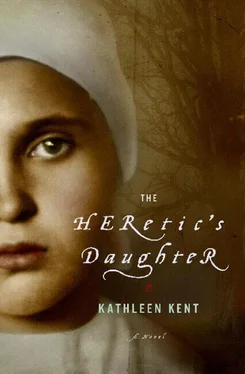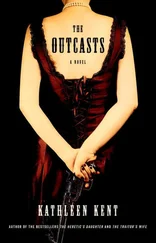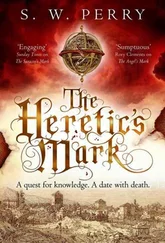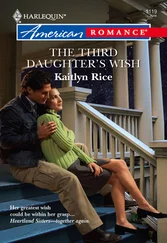In the early morning hours of Wednesday, the 15th of June, the day before Uncle died, a stranger had come to the door and told Father that Uncle wished to see him as soon as was humanly possible. The man was a physician returning to Haverhill from Boston and had, as an act of charity, attended to those who were imprisoned there. He told Father that Uncle was well enough in body but that he was heartsick and desired for Father to come to Boston. He gave Father a sealed bit of parchment to read and left us before we had even thought to offer him food or drink. Father read the note and then threw it into the fire. Before it had been reduced to ashes, he had taken up his coat and hat and was on his way to Robert’s farm to borrow his horse.
When he rode past the house going north towards Boston, Richard ran after him, following insistently until Father dismounted and spoke to my brother at length. Soon Richard trudged back to the house, but when I questioned him he would say only that Father had gone to visit Uncle. And though he would speak no more on it, his eyes were hard and glittering, almost triumphant. Father was gone the whole of that day and the next, returning to us on Thursday evening, the 16th day of June. The day that Uncle would have died.
I thought, as I lay suffocating under the covers to hide my tears, of something Mother had once said. “Happy accidents come to those who have the mettle to hatch them.” I thought of the resolute knowingness that had settled around Father’s eyes at Robert’s news and I was overcome with a terrible feeling that death had come to Roger Toothaker most unnatural.
IT HAS BEEN said that the days of a child pass very slowly, as they are at the beginning of things and old age and death are a distant dream. But the days following my mother’s arrest passed by at such a pace that I sometimes imagined I could feel the winds from the sun and the moon as they hurtled themselves across the sky. And every day I watched the world with two pairs of eyes and ears. One pair on my work and another watching and listening for the approach of the constable’s cart.
On the 28th day of June the Salem Court of Oyer and Terminer began its second session. Rebecca Nurse was found not guilty by the court’s jurors, but there was such a hideous outcry from the accusers and the judges that the jurors were sent back to reconsider, and when they returned she was convicted as charged. Over the five days of that second session there were twelve men and women brought to the court, my mother being one of them. On July 1st Father went to Salem to attend her trial. He woke me up before dawn on that morning to make his breakfast and fill a sack with food and he left, saying only, “If I’m going to a dogfight I want to be there to hear the first growl.”
At the trial, my mother was indicted for two spectral attacks by young women she had never seen before coming to Salem. It seemed that Uncle’s death did not stop the accusations or the crushing slide towards a final justice. When Father returned to us that night, he told us that Mother was taken back to jail and that her sentencing would not come until sometime in August. What he did not tell us then was that five other women, including Rebecca Nurse, had been convicted and were to be hanged before the month had ended.
The month of July flew on and grew unbearably hot as Mother had predicted it would be. We rose each day to put on steaming, dirty clothes, we chewed our flattened bread and moistened it with water so that it would not catch in our gullets, we wiped the sweat and chased the flies, and ate our soup at noontide, and pounded our fraying implements against post and stump, shredded our meat for supper, and laid ourselves down again at evening-tide to wrestle against our dreams and our fetid sheets. I had made myself my father’s shadow and the house could have burned down for all the care I gave it in order to be at his side in the barn and in the fields on the days he did not go into Salem.
My dress was torn under both arms from lifting and hauling heavy loads, and the skin on my knees was torn and scabbed over from the scratches I received on my bare legs, but I gave no thought to stockings or sewing, preferring the safety and comfort of standing close to the towering figure of my father. Hannah had grown so dirty and her clothes so threadbare that had I the strength for shame, I would have hung my head to see her trailing flies like a yearling stoat. She never seemed to mind, and as long as I was within her sight, she played happily in the dirt of the fields or the hay of the barn. Her playthings were whatever came to hand: a stick, a bottle, a spoon, for we had no time or desire to make her the simplest of toys.
On the 14th of the month, Father and I were working to right the murmet that had fallen over in the cornfield. The stalks were by then over the crown of my head but Father’s head was so far above the silk that, had he been a hundred yards away, I could have found my way back to his side. I held the lug pole while he wrapped birch whips around a sturdy branch that would make the murmet’s arms. We mostly worked in silence but for the chattering of Hannah as she braided some corn leaves together to make a wreath for her head. I felt cocooned within the wall of corn and the comfort of it loosened my tongue and I asked, “Father, did you have such a murmet when you were a boy?”
“Aye,” he said and I thought he would leave it at that but he continued, “But that’s your mother’s word. We people from Wales called him a boogan.”
I stumbled over the word a few times, the Welsh harsh in my mouth. I knew that Father had grown up speaking a language that was not like the English we spoke but he rarely used it around us. He turned the murmet around to face the east and molded my hands over the pole to make it stand firm while he planted it again in the ground. “Some of the north folk call him a scarecrow,” he said. “But the English have better ways to make scarce the crows.” He said “English” in such a way that sounded scornful, and, though his face was placid enough, his mouth was frowning and troubled.
“And what is that, Father?” I asked, coaxing him to talk more.
“They put pikes all round the perimeter of a field. The pikes are sharpened to a razor’s point. And on every pike, pierced through the breast, is a blackbird. Some yet live and flapping. The crows don’t like it. And as long as any part of the blackbirds cling to the poles the corn stays whole. That’s the English way.”
As Father knelt down to tamp new earth at the base of the pole, I looked to the outer edges of our little field and imagined it ringed with sharpened sticks all tipped with wilted, quivering bodies. His voice came close to my ear. “It’s how the English run their courts. They sacrifice innocents, thinking to keep evil at bay, and call it a kind of justice. But they are no more just than this pole is a man.” When I looked back at him he was still kneeling, his eyes close to mine, and the strength of his gaze made my throat tighten. He said with a sudden passion, “I would move the earth to save your mother. D’ye hear me, Sarah? I would tear down the walls of her jail and carry her to the wilds of Maine, but it is not what she wants. She will throw herself at her judges because she believes that her innocence will show through all the lies and deceptions.”
He looked away, sweeping his eyes across the horizon, and said softly, as though speaking to the wind, “She humbles me with her strength.” I studied closely the granite features of his face in profile. I saw the dirt lining the pores of his skin and the curved lines of pitted canals encircling his eyes and lips and saw the stamp of years of struggles of which I knew nothing.
“Is there nothing we can do?” I asked him, my hands closing around his arm.
Читать дальше












